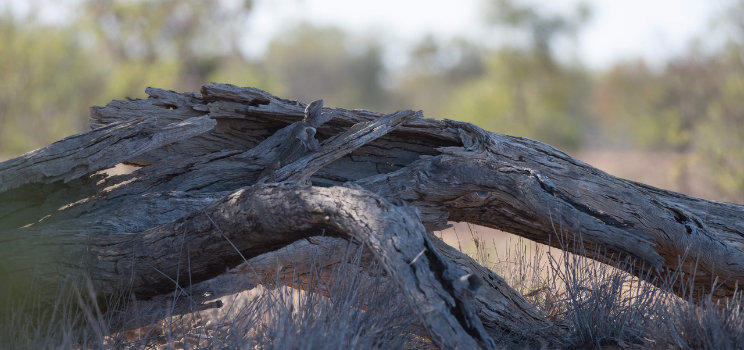Fascinating research into the private lives of Bearded Dragons is underway at AWC’s Bowra Wildlife Sanctuary in south-western Queensland. The work is revealing a complex system of reversible sexuality, where eggs that start as genetic males can transition into females by the time they hatch, depending on the temperature of their nests.
In order to track and model the lizards’ movements, Kris Wild and Phil Pearson, PhD students from the University of Canberra, have fitted them with specially designed GPS-enabled backpacks. These devices gather precise information about the location and behaviours of individuals, allowing nest sites to be identified.
AWC carries out ecological research projects, led by our own staff, or in collaboration with universities, which investigate threats to wildlife and help inform management priorities across our network of sanctuaries.

During fieldwork over summer, one of the bearded dragons being tracked (a pregnant female which researchers had affectionately named Niña) was attacked and killed by a feral cat. Another casualty of the one million Australian reptiles estimated to be killed by feral cats kill every day.
Sex determination in reptiles is more complicated than the XX / XY chromosome-based system that we mammals are familiar with. In some groups like sea turtles, sex is determined by the temperature of the nest during incubation of the eggs, so at higher temperatures, more offspring develop as females.
And in some Australian lizards, including Bearded Dragons, it turns out that sex determination is a complex mix of both genetic factors and environmental conditions. Research over the past few years has shown that Bearded Dragon embryos which are genetically male at the time of fertilisation can switch sex if incubated at a higher temperature. The current project is investigating the movements and nesting behaviour of the ‘sex-reversed’ lizards, to see if the phenomenon is affecting sex ratios in the local population.
Read more about the study here.
Across AWC sanctuaries, there are currently 40 AWC research projects, as well as over 100 externally-led research projects such as this one.